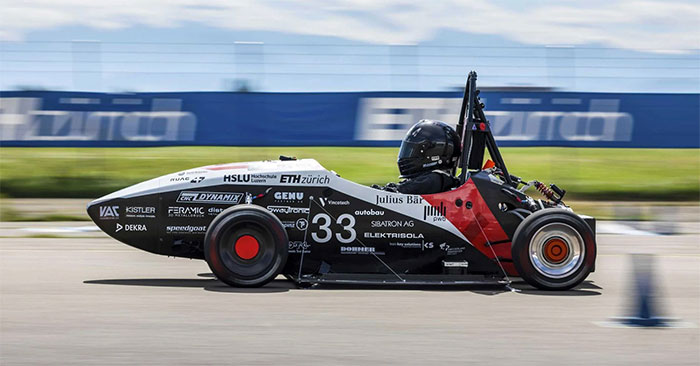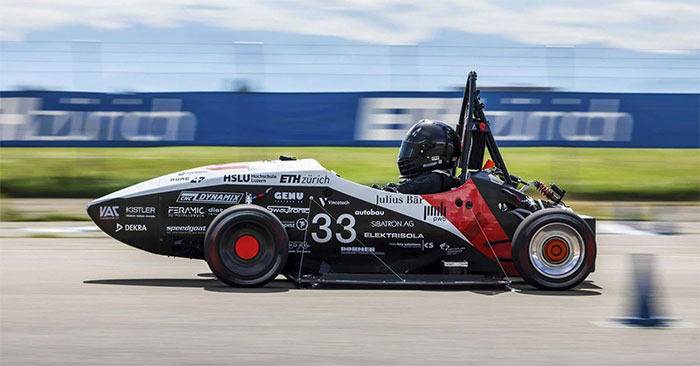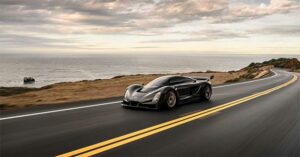
The Academic Motorsports Club Zurich (AMZ), based at the University of Zurich and Lucerne in Switzerland, has successfully constructed an electric racing car named Mythen.
Kate Maggetti, a female racer, achieves a new milestone at the Swiss innovation park in Duebendorf by driving Mythen, a racing car that can accelerate from 0 to 100 km/h in just 0.956 seconds, completing the feat in less than one second. This remarkable achievement is accomplished in a car that measures only 12.3 meters in length.
: (https://www.youtube.com/watch?v=mvoFemftA34)
Students from Stuttgart University, Germany, had set a record last year for an electric car achieving a 0-100 km/h acceleration in 1,461 seconds. However, this remarkable accomplishment has now exceeded that previous record.
The team of Swiss students has successfully developed and enhanced the functionalities of various vehicle components using printed circuit boards (PCBs). Utilizing an ultra-light carbon and aluminum honeycomb structure, they have managed to construct an electric racing car weighing a mere 140 kg. This incredible vehicle boasts an impressive power capacity of 240 kW, equivalent to approximately 326 horsepower, owing to its central motor and specialized transmission system.

According to Dario Messerli, the leader of AMZ’s aerodynamics department, achieving an acceleration record requires not only power but also effective power transmission to the ground. Formula 1 cars commonly address this challenge by utilizing aerodynamics, specifically rear or front wing designs that generate downforce and keep the car connected to the ground. However, it is important to note that this design only becomes effective once the vehicle reaches a certain speed.
The AMZ team has created a vacuum cleaner equipped with a suction nozzle that securely presses the vehicle against the ground, guaranteeing a powerful grip right from the moment it begins to roll.
The AMZ student group has previously set the world’s fastest acceleration record for an electric vehicle twice, in 2014 and 2016. However, their record was later surpassed by the team at the University of Stuttgart in subsequent years.


